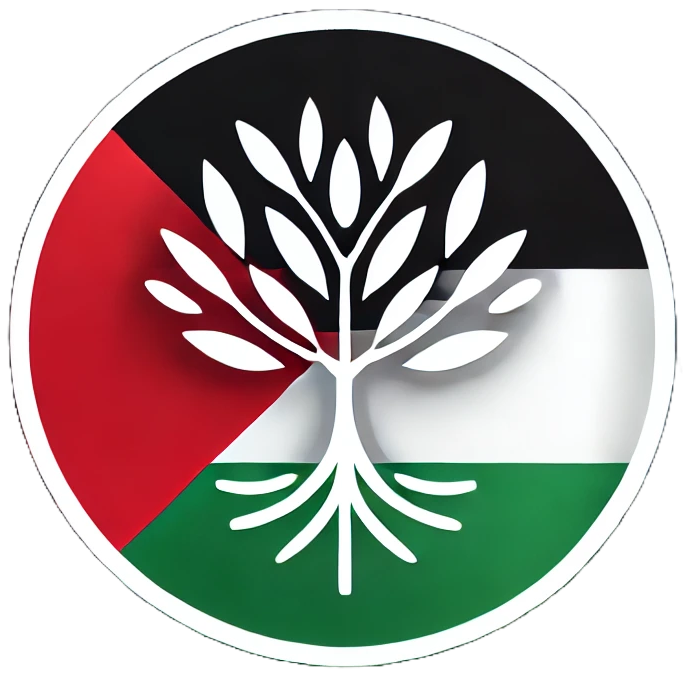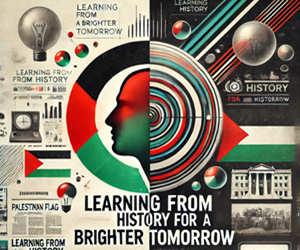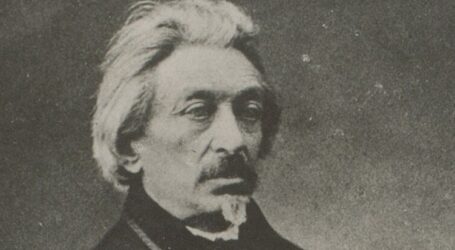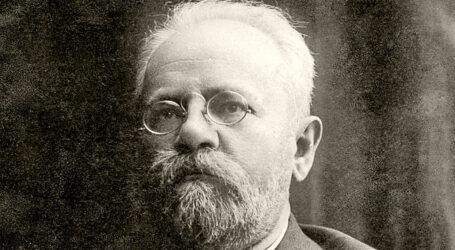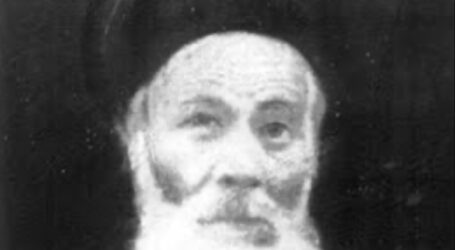Dov Ber Borochov: Biography
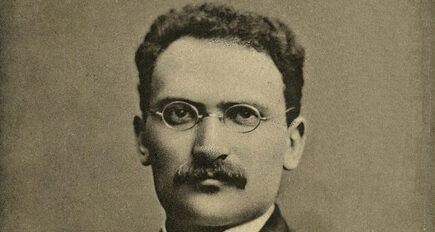
Born: 1881, Zolotonosha;
Died: 1917, Kiev
Dov Ber Borochov was a writer, politician, and Marxist Zionist. He was born in 1881 in Zolotonosha. He did not have a traditional Jewish education, instead graduating from a Russian high school, however he was denied entry to Russian Universities, preventing him from furthering his education. He joined the Russian Social Democratic Party, but was expelled from it after founding the Zionist Social Worker’s Union in 1901. Anti-Semitism pushed Dov Ber Borochov towards Zionism.1
In 1905, Dov Ber Borochov wrote The National Question and Class Struggle. In this work he argues that, “The psyche of every personality adapts itself, more or less, to the conditions under which its group lives… the keen observer will always discover in these traits some relationship to the material conditions of a given system of production or to a definite stage in the development of the system… Life under relations of production, which are harmonious for the individuals of the group, evokes class solidarity. Life under one and the same conditions of production, when the conditions are harmonious for the members of a society evokes the national consciousness of that society, and the feelings of national kinship. The individual members feel this kinship as something associated with their common past. Naturally, this does not always mean that they really have a common past. Sometimes the antiquity of the common past is purely fictitious. This feeling of kinship, created as a result of the perceived common historic past and rooted in the common conditions of production, is called nationalism.”2 Borchov goes on to argue that in his analysis the material resources of a nation and nationalism are always related. The most important of the material resources of production is the territory.
In another one of Borochov’s works published in the same year, he discusses The Question of Zion and Territory. In this work he writes that, “The dynamic cause for the Jewish national movement is the real suffering of the masses of the people which is rooted in inescapable alienation. But the ideal goal of the movement is nursed by the spiritual content of the Jewish nation. This content is formed by the totality of Jewish national values. This totality, liberated from its religious and mystical basis by the normalization of the Galut, gives us an earthly Zion with its three-fold unity, the nation, the culture, and the homeland. All the vital national values are necessary for the vision of the national liberation movement.”3 Here he also criticized the “dogmatic territorialism” of some Zionists writing that, “The dogmatic territorialist, when he compares the prospects of all possible territories, can see the national inclination towards the land of Israel as a very important advantage. But pure territorialism does not supply any standards from which to make a choice, between the Land of Israel and any other territory which is better in some respects. This is because there is no way of measuring the exclusive, national value of the appeal of the Land of Israel, on the one hand and the advantage of “a territory” on the other.”4 This showed in particular Borochov’s fierce opposition to the Uganda Plan which was presented by Theodor Herzl to the World Zionist Congress, an organization in which Borochov was very active.
Around 1905-1906, Dov Ber Borochov helped found Poalei Zion (Workers of Zion), a Marxist-Zionist party in which its platform was based on Borochov’s political thought. In his work, Two Currents in Poale Zion, he writes that “every socialist must pose this question. How do the two great ideas of liberation-social liberation of laboring humanity and national liberation of oppressed peoples-relate to each other?”5 He goes on to write that his party, Poalei Zion, simultaneously takes on both projects. Borochov writes that his party “wants to answer the social question through socialism and the Jewish question through Zionism.”6 He says that “The first question is how to link socialism and Zionism so that no contradiction exists between them and so that both great tasks support each other harmoniously. The problem is that socialism can be only realized through class struggle and Zionism only through the national struggle of the entire Jewish people… Socialist Poale Zionism handles the problem by bringing national unity into socialism. It wants to realize socialism without class struggle. Social Democratic Poale Zionism handles the problem by bringing class struggle into Zionism. It wants to realize Zionism together with the entire Jewish nation, but without renouncing the class struggle against the bourgeoisie for even a minute.”7
Another one of Dov Ber Borochov’s significant works is the Poalei Tziyon Peace Manifesto. The manifesto, published in 1917 during World War I discusses his party’s platform. In the “General Principles of Peace” he writes that his party supports “the demand for general disarmament, democratization of foreign policies, neutralization of the international highways on land and sea, free commerce and traffic, free immigration, colonization and settlement, and the unlimited right of every nation to determine its own destiny.”8 He goes on to write about the Jewish Question saying that he wants “international guarantee of the rights of the Jewish people be included in the treaty of peace. In spite of the loss of their independence, of having been torn from their native soil, of being dispersed, and of continually wandering, the Jewish masses remain a nation, united by a common history, language, culture, custom, and peculiar economic position; and to preserve their national homogeneity and individuality, they have made the greatest sacrifices. The depriving of great masses of Jews of human rights in Russia and Rumania for decades, has beclouded the fact that the Jewish question is essentially a national question.”9 He goes on to write about Palestine, which at the time was embroiled in war between the British and Ottoman Empire. Borochov writes that “The main source of all sufferings of the Jewish people is the loss of their historic homeland and their dispersion over many countries. The lack of a homeland has deprived the Jewish people of the possibility of independently controlling its existence, and has brought its destiny into an unbearable dependence upon the rise and fall of nations under whose rule it lives. The lack of a homeland is the explanation of its abnormal existence and its exceptional position among the nations of the world; it is above the cause of the unwholesome economic structure and social grouping of the Jews; for their insignificant capacity for political and social resistance; for their unceasing migrations; and for their restlessness. It is not particularly necessary to indicate how far these abnormalities impede the development of the Jewish working classes. The undertaking of this situation and the uninterrupted spiritual association of the Jewish people with its ancient native soil called into being the Jewish national movement aiming at a territorial solution to the Jewish question by creating a Jewish settlement in Palestine. We see as inevitable for the recovery of the Jewish commonwealth of its normal existence a radical restratification of economic life, which presupposes an assignment of a possible large portion of the Jewish people to the soil and to the production of raw materials. The settlement of migrating Jewish masses in Palestine reveals already, in spite of all hindrances, very promising results. It is the beginning of a Jewish community of labor and culture, which in its growth is destined to become attractive for emigration and a hearthstone of free national development of a people secured in its existence. The intense vital power of this national ideal manifested itself both in the self-sacrificial attitude of the Jewish masses in the cause of Palestine and in the fact that this ideal gave the Jewish people renewed faith in itself and has become a powerful lever in a tremendous national rejuvenation in which all classes of our people are participating. Our demands in regard to Palestine today are not only the immediate aspirations of the popular movement initiated by Zionism, but also the demands of a large majority of the Jewish democracy. The revolutionary transformation of the basis of Jewish national existence by establishing a national homestead in Palestine can only be accomplished by the labor of the Jew himself. But we are justified in demanding from other peoples and especially from the organized international proletariat the elimination of those artificial hindrances which render more difficult or ever threaten to undermine the progress of the Jewish national development in Palestine. The impeding of Jewish colonization contradicts the democratic principles of free movement of masses seeking employment and the right of national self-government. The striving of the Jewish people for the most part fallow land, which with the application of modern methods of production could employ millions of new settlers, would not only work a revolution for this people but would also be of great benefit to the population of the country and a step forward in the progress of the world. It is clear that this colonization has nothing in common with the politics of colonial conquest, expansion, and exploitation. The Jewish people possessing no power of statecraft and seeking neither markets nor monopolies of raw materials for production in favor of a “mother country,” cannot think of launching a policy of colonial politics in Palestine or of molesting the population of the country. The Jewish people aims at creating a secured place of employment for its déclassé, wandering masses: it seeks to increase the productive forces of the country in peaceful cooperation with the Arab population. The Jewish colonization is already a considerable factor in Palestine’s economic development. The Jewish immigration brings progressive methods of labor, a higher standard of living, and a higher scale of wages. It can therefore only assist the Arab population to overcome their primitive standards of civilization and economics. The new Jewish colonization in Palestine is therefore associated with the important colonization interests of the human race, which should be concerned with returning the only homeless people on earth to its own country, because the world cannot become peaceful as long as even one people is in vain awaiting its deliverance, and as long as the Jewish people, whose destiny is bound up in that of all peoples, is deprived of normal conditions for the development of its national individuality. The Jewish people, whose sons are shedding their blood in the tragic struggle against each other on all fronts, and which suffers the inevitable and avoidable horrors of the war behind the fronts, is justified in demanding that the approaching peace bring to it too an assurance of its existence and of its free development.”10
Dov Ber Borochov was also a strong supporter of the Yiddish language, during a time when Zionists criticized it as a diaspora language and insisted on only using Hebrew as a language. This was shown in Borochov’s work Hebraismus Militans, which was published in 1913 in which he criticized “Hebraists” and naming Ze’ev Vladimir Jabotinsky as one of them.
During a speaking tour, Dov Ber Borochov caught pneumonia and died in 1917 in Kiev.11
- “Dov Ber Borochov .” Encyclopedia of World Biography. . Encyclopedia.com. (January 9, 2025). https://www.encyclopedia.com/history/encyclopedias-almanacs-transcripts-and-maps/dov-ber-borochov ↩︎
- Borochov, Ber. The National Question and Class Struggle, Marxists.org, https://www.marxists.org/archive/borochov/1905/national-class.htm. ↩︎
- Borochov, Ber. The Question of Zion and Territory, Marxists.org, www.marxists.org/archive/borochov/1905/zion-territory.htm. ↩︎
- Ibid. ↩︎
- Borochov, Ber. Two Currents in Poale Zionism, Marxists.org, https://www.marxists.org/archive/borochov/1915/two-currents.htm ↩︎
- Ibid. ↩︎
- Ibid. ↩︎
- Borochov, Ber. Poalei Tziyon Peace Manifesto, Marxists.org, https://www.marxists.org/archive/borochov/1917/stockholm.htm ↩︎
- Ibid. ↩︎
- Ibid. ↩︎
- “Dov Ber Borochov .” Encyclopedia of World Biography. . Encyclopedia.com. (January 9, 2025). https://www.encyclopedia.com/history/encyclopedias-almanacs-transcripts-and-maps/dov-ber-borochov ↩︎
